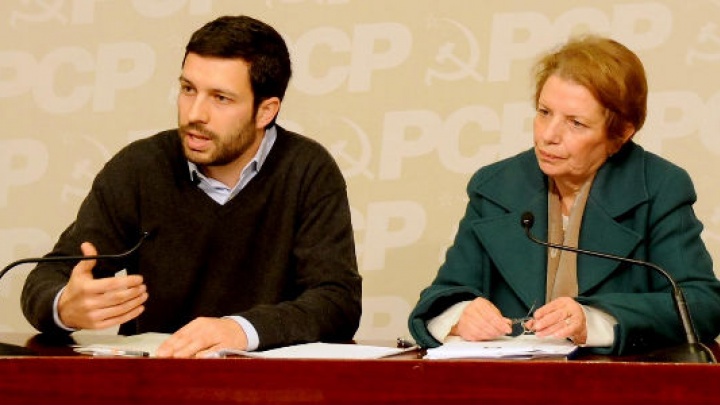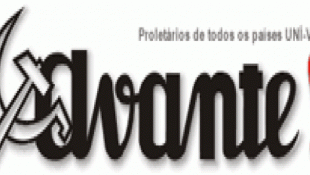Press Conference statement by Ilda Figueiredo and João Ferreira, PCP Members of the European Parliament
18 February 2011
1.So-called “economic Governance” is merely the implementation of a thoroughly neo-liberal package of structural adjustments, with measures ranging from strengthening the Stability Pact – with the possibility of imposing very harsh fines on States that are considered to be non-compliant – to permanent determination and monitoring of all national macro-economic activities. Were these measures – that overlook or ignore the real causes for the difficult social and economic situation of countries such as Portugal – to be implemented, they would entail very serious consequences for those countries, and very specifically for their peoples' rights and living conditions.
2.The philosophy behind “Economic Governance” - that basically seeks to institutionalise and set in stone the interference measures and policies contained in the EU/IMF's misnamed “aid mechanism” – submits the Portuguese State to a very high degree of control and auditing, including compulsory monthly reports on all public sectors and services and on macro-economic forecasts. Were it to be adopted, it would relegate Portugal's sovereign institutions – and in particular the Government and the Assembly of the Republic [parliament] – almost to mere managers and implementors of supra-nationally imposed measures. All supervision and control would be over public expenses and their evolution, while at the same time demanding that State income be raised through, in particular, raises in the “blind and unfair” indirect taxes, the ones that everyone pays regardless of income. Conversely, not a single measure is targeted at capital, to achieve more and better redistribution of wealth or more and better controls – thus proving that all the speeches about supervision, regulation and an end to off-shore havens are merely diversions and propaganda.
3.The “Competitiveness Pact”, that the Franco-German axis is attempting to impose, to complement the “Economic Governance” package, poses a larger and very serious threat to European workers' and peoples' rights. Its features are those of a revanchist crusade against labour and social rights – through an onslaught against wage levels, a rise in pensionable age, the elimination of restrictions on the circulation of labour force within the EU (thus creating conditions to devalue it and to flexibilise labour laws even more), and a downward harmonisation of social rights. It is really a long-term neo-liberal federalist programme, that through measures such as compulsory constitutionalisation of public accounts deficits or the imposition of economic policies (particularly fiscal policies) can guarantee stability for big business and for the EU's most powerful economies – by enacting a sentence of colonial-type economic dependence against countries such as Portugal.
4.If the key features of “economic governance” and the “Competitiveness Pact” were to be adopted, they would constitute a qualitatively new leap for the European Union's neo-liberal and federalist character. They would have far-reaching implications, and would be underpinned by a line of inadmissible interference by the EU and its major powers into the economic, political and social priorities of countries. Under no circumstances must these be allowed to be established by anyone other than the Portuguese people and for the Portuguese people, through their sovereign institutions established and enshrined in the Constitution of the Portuguese Republic.
5.The threat that now hangs over Portugal as a sovereign and independent country as a result of stepped-up capitalist integration in the EU, is indissociably tied in with the PS government's evil doings, in particular those arising out of this year's State Budget, which has intensified the exploitation of Portugal's workers and people to its highest level since [the] April 25th [1974 revolution]. As the PCP has stressed, Portugal's current situation requires that a break be made with the right-wing policies of successive governments, and with these governments' total submission to, and concertation and coordination with, the EU and the big powers' interests – that have been once again exposed as having the sole goal of demanding more sacrifices from those who work and have to live on their income.
6.In this case – as was the case with the treaties, the Europe 2020 Strategy, the Economic and Monetary Union, the Euro, the European Central Bank, the Stability Pact – it is democracy that loses out, because it is increasingly obvious that these are tools to be used against workers and peoples who, for their part, are being increasingly kept away from being able to influence and decide on the policies that are determining their future. For 25 years now, Portugal's workers and people have been witnessing a process whereby Portugal is increasingly bound to a European integration that promises much but continues to still deliver only sacrifices for them, while wealth is increasingly concentrated and social injustices and inequality proliferate.
7.By reasserting their power over how the “European integration” process is conducted, the big powers and in particular Germany are consolidating their directorate, seeking to wash their hands of their own responsibility for the crisis and for their plunder of countries such as Portugal, while once again making workers and peoples foot the bill and opening the road to still more dependence, for the benefit of speculative capital's pressure and blackmail against peripheral countries.
8.So-called “economic governance” is the living expression of one of big monopoly capital's age-old ambitions – one that has actually been quite clearly laid out in the proposals advanced through the years by their representative structures within the EU (Business Europe; ERT; etc). It is a part of the long-desired and long-prepared vengeance against workers and their social gains. The offensive of European and national big business has reinvigorated and reinforced its power, through intensified exploitation and through this deep blow against national independence and sovereignty.
9.Contrary to what the PS, PSD and CDS/PP [parties], the European Commission, the Council, and all their propaganda say, these proposals are not the only possible road. Much less are they what is required for progress and social justice in Portugal and in Europe. The PCP deplores the Portuguese Government's statements and stances on this issue – that expose their no longer concealable nature: anti-social, neo-liberal and submissive to big business interests and to the big powers' directorate.
10.The PCP once again states that the crisis cannot be solved unless there is a break with the key lines of capitalist European integration: neo-liberalism, federalism and militarism. It is urgent to make a break with the European Union's current economic and monetary policies – specifically by ending the Stability Pact and by completely reversing the anti-social policies expressed in this “economic governance” proposal and in the so-called “Competitiveness Pact”. Each country's national sovereignty and democracy must be respected, labour and social rights must be enhanced, true convergence and cooperation must be incentivated – based on social progress, on support for national production, on public investment, on stronger public services and on jobs with rights. An end must be put to the “free” circulation of capital, to tax havens and financial derivatives, and a real attack must be mounted against stock-market and financial speculation.
11.It is essential that each people be able to exercise their right to democratically control the economic, social, political and cultural tools required to safeguard their present and their future.


